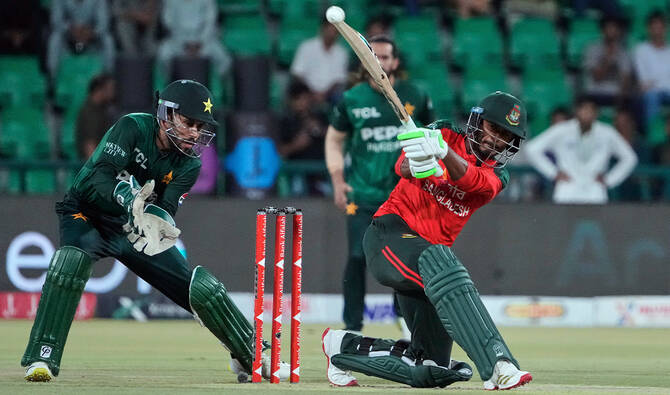ISLAMABAD: Pakistan is hosting ministers and officials of private mining companies from Saudi Arabia, China, the United States and a host of other countries for a two-day minerals summit in the capital today, Tuesday, as it eyes international investment in its natural reserves estimated to be worth $6 trillion.
Grappling with a prolonged macroeconomic crisis, Pakistan hopes to tap into its vast reserves of minerals and natural resources to turn its fortunes around. The country is home to one of the world’s largest porphyry copper-gold mineral zones, while the Reko Diq mine in southwestern Balochistan has an estimated 5.9 billion tons of ore. Barrick Gold, which owns a 50 percent stake in the Reko Diq mines, considers them one of the world’s largest underdeveloped copper-gold areas, and their development is expected to have a significant impact on Pakistan’s struggling economy.
The Oil and Gas Development Company Limited (OGDCL), Pakistan’s leading exploration and production (E&P) company, in collaboration with the government of Pakistan and strategic partners are organizing the summit. Petroleum Minister Ali Pervaiz Malik said this week that the government expects around 2,000 people to attend the Pakistan Minerals Investment Forum from Apr. 8-9 in Islamabad, which would include a “significant” number of foreign dignitaries. He said officials from China, Azerbaijan, Saudi Arabia, China and the US are expected to attend the summit.
“To truly unlock the potential of this [mining and minerals] sector, we need more than just capital,” Pakistan’s Deputy Prime Minister Ishaq Dar said at the summit. “We need a shared commitment to collaborate. Cooperation among governments, industry leaders, investors and local communities is very essential.”
The deputy premier said investment in Pakistan’s mineral sector not only represents financial opportunity but a vital step toward securing a sustainable and “technologically advanced future” for the coming generations.
“The Pakistan Mineral Investment Forum 2025 provides a unique platform for stakeholders, friendly countries and partners to converge, explore new prospects and build mutually beneficial partnerships,” Dar added.
Dar called on attendees “to invest with purpose, with foresight and with the collective well-being” of the people of Pakistan and its partners and investors in mind.
Pakistan is expected to unveil its newly developed, investor-friendly National Minerals Harmonization Framework 2025, which aims to attract investment in the country’s mineral sector, at the forum.
Malik said on Monday that the summit would also feature key agreements and memoranda of understanding (MoUs) signed between Pakistan and other countries.
“It is the prime minister’s wish that we do not restrict this event to just words, so we will confirm some MoUs in front of you,” the minister said. “Along with this, not just MoUs but a few agreements will also be executed after which we will take these matters toward implementation.”
Pakistan has designated mining and minerals as a priority sector for national economic development, aiming to reduce its reliance on imports and enhance exports. The country is undertaking efforts to utilize its natural resources through foreign investment and collaboration to stabilize its $350 billion economy, which has suffered a prolonged economic crisis over the past few years.
Islamabad has aggressively pursued trade and investment with its regional allies, Central Asian states and Gulf countries in recent months to ward off a macroeconomic crisis that has drained its reserves, weakened its currency and triggered a balance of payment crisis.
Pakistan formed the Special Investment Facilitation Council (SIFC), a hybrid civil-military government body, in 2023 to attract international investment in its key priority sectors, mining and minerals among them.




















